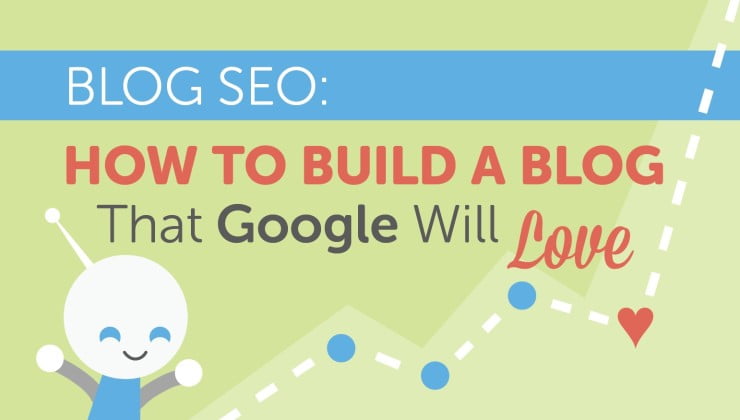Rise of the Entrepreneur — Get Started Now!

While being your own boss can be scary and a little risky, it’s not as difficult as people think. You do have to be someone who loves his freedom, likes to be able to set his own schedule and likes to work on things he’s excited about.
Is that all there is to it? No, it takes a ton of hard work, and an ability to learn from your mistakes, and an ability to get up and go again.
Let’s briefly look at some of the things that will help you on your journey to freedom.
First: Can Anyone Be Self-Employed?
Not everyone should, because some people just love working where they’re working, they love the people they’re working with, and they absolutely love what they do. They couldn’t be happier working on their own. And, that is probably great if you want to be in the same situation year after year.
But … there’s a fallacy that those who start their own businesses or work on their own are somehow born with an “entrepreneurial spirit” that the regular workaday employees just don’t have. They aren’t “risk-takers”, they aren’t self-motivated, and they just can’t manage themselves.
That is just a load of excuses.
Sure, some people like the security of a regular paycheck, but if recent events have taught us anything, it’s that this kind of security is an illusion because they usually spend everything they earn and are no farther ahead at the end of the year as when they started.
Sure, some people are afraid of starting their own business, because it means they have to figure out things they know nothing about … but don’t we all do this, anyway?
No-one really likes being told what to do, or work on what someone else wants to do. We all like freedom, but we allow our freedoms to be sacrificed out of fear.
It’s this fear that stops us. And so the question really becomes: can anyone overcome this fear?
It is possible. Whether you’ll be successful at overcoming the fear, and at starting your own business, is another question — it takes work, and time, and an ability to accept failure and learn from it.
How to Overcome the Fear
Ask yourself: what’s the worst that can happen?
For some, it’s that you’ll lose your mortgage and become bankrupt. But that’s happened to millions of people recently, and they’re OK. They just can’t get another loan soon, but they’re still living. For others, it’s a fear that you’ll be out on the street or hungry. Ask yourself, though, if you have a safety net: family and friends who will take you in if it ever comes to that.
That’s the worst case scenario. Now ask yourself: is that likely to happen? Probably not. If things get bad, you can take a job with someone else, or try a new tactic, or figure something out so that things don’t get that bad.
Stay Lean and Small
Lean and small and hungry and nimble and flexible are good things. It means you don’t need to pay a lot of bills, you don’t need a huge amount of revenues, and you can change as you need to. Big corporations need to make huge revenues, need to sell millions, and have a hard time changing because of a massive corporate structure and thousands of meetings and lots of invested time and lots of people who are resistant to change. Small and lean has none of those problems.
Don’t start with a lot of expenses — start small, with zero or almost zero expenses.
Sure, not everyone can start for free, but you can start small.
Want to run a ballet studio or fitness studio? Start by going to your clients, or start in your home, or do it at schools and use their space. Want to start in retail? Start online, with a cheap host and free web software. Want to be a marketer? Do it out of your home, with a cell phone, a computer and a car. Want to be a landscaper? All you need is a lawn mower to start out. Want to start a health clinic? Operate out of your home, or make house calls, in the beginning.
There are lots of ways to start out cheap — if your business requires lots of money, think about scaling it back or finding a different way of doing it, for free.
Starting out cheap means it’s hard to fail and easy to succeed.
Start Right Away
Don’t wait for perfection. Figure out the simplest way to start, and just start. Don’t worry about taking a bunch of expensive courses — just do it, and learn as you go. You might even start for free if possible, so that you can gain experience and as you get better, you’ll get good word of mouth.
Start out without an office, a website, business cards, employees, and a lot of equipment and software. Sure, you’ll need some of those fairly soon, but you don’t need them to start. Well, unless your business is a website — then you’ll need a site, but those are cheap.
You can get a business card later. You can set up your accounting structure later. You can figure things out as you go. The important part is just starting.
Does that mean you don’t need to plan? Well, you should, but don’t overdo it. You should give a lot of thought to what you’re good at, what you can offer, who your target customers are, how you’ll make money, how much you should charge, how you can add value beyond what is already offered out there. But don’t let it stop you — if you can’t decide on something, just start and adjust your targets as you learn.
On Quitting Your Day Job
For most people, it’s best to keep your day job at first, just so you have some income while you get the business started. Work in the morning, on your lunch break, after work, even during work if you’re not super busy — just don’t get fired. This is a good way to fund your start up — have a steady income and get the business going until you’re ready to quit the day job.
For some, quitting the day job is best right away, because it gives them the kick in the butt they need to get moving. It’s scarier this way, of course, but there’s no better motivator. This is best for people who don’t have a big family to support — singles or couples without kids — or if you do have a family, perhaps you have some savings you can live on for at least 2-3 months while you get the business off the ground.
Even if you quit your day job, you might be able to do some freelancing or consulting business to get some regular income right away, as you also get the business going.
What to Do
First, you should choose something that you love and know a lot about. If you love gardening, do something related to that. If you love writing, do that. You should ideally have some experience, or be willing to put in a lot of hours learning at first. If you’re already good at something, and you love doing it, you’re off to a great start.
Next, you should figure out what you have to offer, and how it will be different than what’s already out there. How will you meet people’s needs in a new way? Who needs your service or product? How will you reach them? Where do they go now, either in the real world or online?
And what’s the simplest way you can reach them and offer your product or service? Simplest means the least work, the least amount of steps and complications, the easiest for the customer, the least expensive, the least amount to start up.
And how fast can you get started? What’s the bare minimum you need to get started? For many, this is signing up for a free web account and putting up some content. For others, this is calling the right people and meeting with them with an offer to provide services. And that’s all — get the basics started, and add the rest later.
Again, you can get the business card later. You can figure out accounting and corporate structure and all that later. You can refine your marketing and product later — just start, and keep improving.
Never Stop Learning, and Never Stop Failing
Failure is not the end of your business. It’s just the beginning.
You have to take the attitude that failure won’t stop you from making it on your own. If your business doesn’t get off the ground, learn from that. And try again, but do it better this time. You might need to get a job temporarily to fund your life as you make another attempt, but that’s OK. You do what you gotta do.
Failure isn’t a reason to get depressed, to quit. It’s a learning opportunity. Failure is a stepping stone to your success.
And if you make it, don’t take that as a reason to get complacent. You should always be learning, always improving — not because you’re not satisfied with what you’ve done, but because if you stop learning, you’ll stop having fun. There should always be new challenges, new things to explore, new skills to learn, new ways to grow.
One more thing: do not be afraid of hard work. You’ll work harder than you ever have. Becoming an entrepreneur is not about laying around in a hammock and drinking Margaritas. Although you can do that, when you want to. It’s about loving what you do, about working hard to build something you’re proud of, about pouring your heart and soul into something rather than giving it to someone else. Make no mistake about it: you’ll work hard, or you won’t succeed. But you’ll love every minute of it.
Should you Start in a Bad Economy?
Yes.
This is the best time to start. This is a time when job security is low, so risks are actually lower. This is a time to be lean, which is the best idea for starting a business. This is the time when others are quitting — so you’ll have more room to succeed.
And with social media and networking taking off, this is the easiest time to start a business, the easiest time to spread the word, the easiest time to distribute information and products and services.
And while the big corporations may struggle in a bad economy, you’re small and lean, which means you don’t have the fat that the big guys have, you are able to adjust to the market much better, and you’re less subject to the problems of financial markets, real estate markets, and other external realities.
But What If Everyone Were Self-Employed?
What if everyone were in business for themselves? Would this be a horrible thing? I can imagine a world of tiny businesses and free agents. I think people would collaborate — with many people — but they’d do so as free agents, not as employees. And that’s a huge difference. A world of difference. Because then they’d come in as equals, and they’d be collaborating because they want to, because they’re excited about a project. Then the world of trying to motivate employees disappears, because people are motivated already — they’re excited, they have freedom, they choose to do the work.
Origional article by Leo Babauta
Dennis Roeder Contributor
Alan Zibluk Market Hive Founding Member — http://markethive.com/alzibluk






